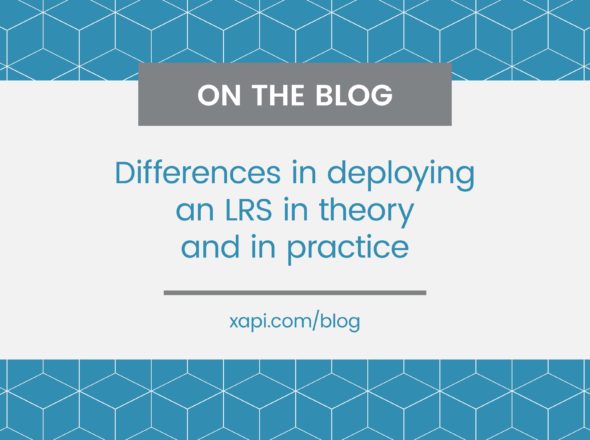Collectively, we could make a big mess of xAPI data. Let’s try to avoid that.
At this point you likely know that xAPI communicates activity data in the form of statements. Each statement is required to have some pieces like actor, verb and object. They also can include context, results, and authority. Within those pieces, highly specific, custom data can be added to communicate the circumstances and to clarify the importance of the activity. The types of custom data that need to be identified in a statement are activities, activity types, attachments, extensions, and verbs. To add those, each must be defined and given an identifier. The identifier needs to link to a place with information about it, like a definition. This means that anyone can define almost anything with one of the five types and include that in a statement.
What’s the mess?
Here’s an example. If a dozen people create their own identifiers with their own definitions of what the xAPI verb “completed” means, then it quickly becomes difficult to know what the verb “completed” really means, in a xAPI sense. Which one, out of the dozen, is the right one to use? If a reporting tool is built to treat data about “completed” activities in a certain way, it will rely on the identifier to know that a statement includes the “completed” verb. When there are a dozen identifiers for the same thing, a person will have to scrutinously monitor the data received in statements to manually add the new identifiers that mean the same thing, so the tool knows to look for them. This makes the data harder to work with and less interoperable. You can read more about this idea here.
So, we built the Experience API Registry for the community to use. It’s a place where every piece of custom data that’s been used in a xAPI statement can be stored, curated, and referenced.
If you want to use the “completed” verb, look it up in the Registry and see what its meaning is. If it’s the right verb for you, great! Use the Registry’s identifier for “completed” in your statement. If you see, from the definition, that “completed” isn’t the right verb for you, then search for another. Maybe “finished.” If you can’t find what you’re looking for, just add it. We’re curating the entries in the Registry for uniqueness and quality, when you add something we will review it and get you a permanently resolvable identifier to use.
Another feature of the Registry that is coming soon is profiles. We’re in the process of building profiles. Today, they are used to group activities. Soon, profiles will include all of the data types in the Registry to create collections of activities, activity types, attachments, extensions, and verbs that are used together in a specific way by a community of practice. The Registry will allow you to name your profile and pick the identifiers that are relevant. Soon you will get a home for your profile that displays these data types on one page to make it easy for others to craft statements that use these known identifiers. You can read more about profiles here.
Check out the Experience API Registry here, and let me know if you have any questions about it.


